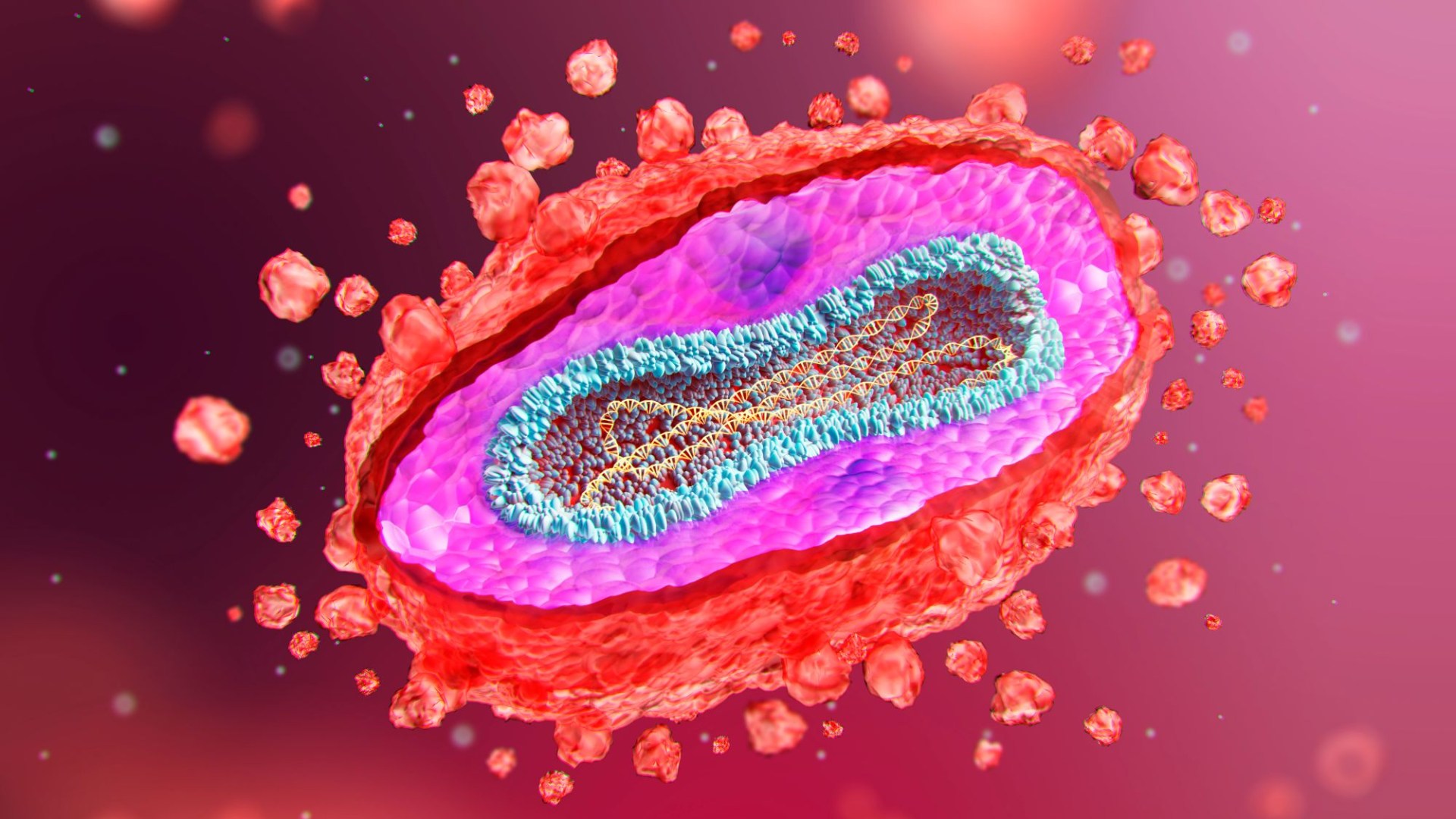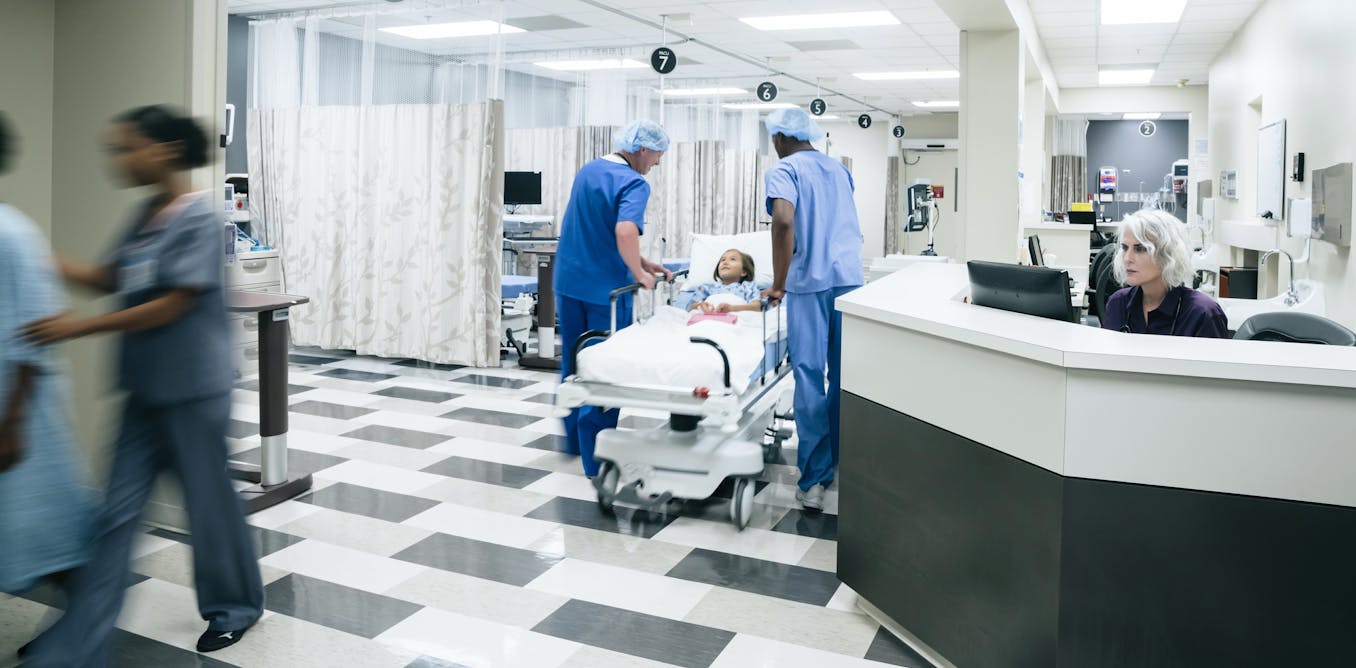MPOX cases have been surging in Africa, with the World Health Organization recently declaring the outbreak a “public health emergency of international concern”.
The strain, named clade 1b, emerged in the Democratic Republic of Congo and since then more than 18,000 suspected cases and over 600 deaths have been recorded in the country this year.
2

2
Officials have said figures have exceeded last year’s total.
While the viral infection is yet to be detected in the UK, scientists are concerned about how fast the new variant – thought to be more dangerous than clade 2 which made headlines in 2022 – is spreading and its high fatality rate.
Experts from the Africa Centres of Disease Control and Prevention have reported 96 percent of all cases and deaths have been in the Democratic Republic of Congo.
But cases have been detected in other African nations, as well as Thailand and Sweden.
No cases have yet been confirmed in the UK, though experts suspect the new variant is already in Britain.
While planning is underway in the UK to prepare for any cases, superintendent pharmacist at Chemist Click, Abbas Kanani, has shared with The Sun the symptoms of mpox to look out for.
Mpox symptoms and those easily missed
Kanani said: “Around one to five days after the first symptoms, a rash on the face usually appears.
“Its appearance of raised spots and small blisters filled with fluid can be mistaken for chickenpox and tends to spread to other parts of the body including genitals, anus and mouth.
“Anal bleeding and pain may also be experienced.”
The most common symptom, according to Kanani, is typically the skin rash which can last two to four weeks.
Where has monkeypox spread?
Monkeypox has been detected in the following countries this year, according to data from the Africa Centres for Disease Control and Prevention, WHO, and the governments in Kenya, Mozambique, Uganda, and the Ivory Coast
Clade 1 and Clade 1a strains:
- Central African Republic – 213 cases
- Democratic Republic of the Congo – 13,791 cases, 450 deaths
Clade 2 strain:
- Cameroon – 35 cases, two deaths
- Ivory Coast – 28 cases, one death
- South Africa – 22 cases, three deaths
He said for some people the first symptom may be a rash, while others may have different symptoms first.
But one symptom commonly missed, Kanani warned, is swollen glands or lymph nodes.
He explained: “Swollen glands or lymph nodes can be commonly mistaken for other causes and are not always obvious, particularly if there is mild swelling or it is deep in the body.
“Also, this symptom can be missed because the rash tends to be the most prominent symptom of mpox.”
Who is most likely to get mpox?
Mpox doesn’t spread easily between people unless there’s very close contact, according to the UK Health Security Agency (UKHSA).
The virus is transmitted via close contact with someone who has mpox – skin-to-skin contact, breathing it in, or being in contact with the eyes, nose, mouth and genitals.
Kanani said: “The majority of cases have been found in men who have sex with men therefore men who are gay or bisexual, who have multiple partners or have group sex are all more likely to get monkeypox.
“Healthcare workers caring for patients with confirmed or suspected monkeypox are also at higher risk.
“Older people, young children and those with an underlying condition or who are taking a medicine that affects their immune system are at higher risk of needing hospital treatment if they become infected with mpox.”
What should you do if you experience symptoms of mpox?
If you notice any of the symptoms listed above, the only way to be certain if you have mpox or not is to call a sexual health clinic so they can evaluate your symptoms and exposure history.
Kanani advised: “It’s best to call before you visit the clinic.
“It’s better to call NHS 111 if you have a rash but you have not been in close contact with someone who has or might have mpox and have not recently visited west or central Africa.
“The NHS advises that you stay at home and avoid close contact with other people, including sharing towels or bedding, until you’ve been told what to do.
“Call your sexual health clinic and explain your symptoms. If your symptoms are mild you may be asked to isolate at home.”
Should we be worried?
Dr Jonas Albarnaz, a research fellow specialising in pox viruses at The Pirbright Institute, said:
“This news of a case of clade 1 mpox in Sweden is concerning for two main reasons.
“First, this is the first clade 1 mpox virus case outside Africa. This indicates that the extent of the international spread of clade 1 outbreak in DRC might be larger than we knew yesterday.
“And second, clade 1 mpox virus is associated with a more severe disease and higher mortality rates than the clade 2 virus responsible for the international mpox outbreak in 2022.
“This is hard to predict whether we will see further cases of clade 1 mpox outside of Africa, but this case in Sweden is a warning call for public health authorities to be vigilant and implement robust surveillance and contact-tracing strategies to detect possible new cases early on.
“It’s also critical to determine what is the link between this clade 1 mpox virus detected in Sweden and the ongoing outbreak in DCR.”




